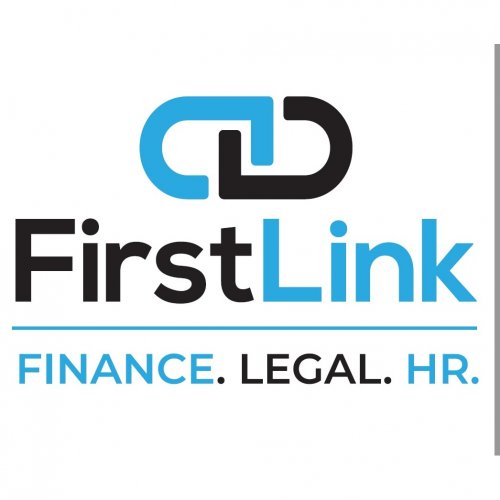Best Communications & Media Law Lawyers in Port of Spain
Share your needs with us, get contacted by law firms.
Free. Takes 2 min.
List of the best lawyers in Port of Spain, Trinidad and Tobago
About Communications & Media Law in Port of Spain, Trinidad and Tobago
Communications & Media Law in Port of Spain, Trinidad and Tobago refers to the legal regulations and provisions that govern the media and communication industries in this location. These laws are in place to ensure the protection of free speech, promote responsible journalism, and safeguard privacy rights.
Why You May Need a Lawyer
There are several situations where you may require legal help in Communications & Media Law:
1. Defamation: If you have been accused of defaming someone or if someone has defamed you through media channels, a lawyer can help you understand your rights and pursue appropriate legal action.
2. Intellectual Property: If you need assistance with copyright or trademark infringement issues related to your media work or if you believe your rights have been violated, a lawyer can guide you through the legal process and help protect your intellectual property.
3. Privacy Rights: If your privacy has been invaded through media reporting or if you need guidance on protecting your privacy rights in the media, a lawyer can provide advice and help you take appropriate legal action.
4. Media Licensing: If you plan to start a media organization or need guidance on licensing requirements, a lawyer can assist you in navigating the complex legal procedures.
5. Media Regulation: If you are facing legal issues related to media content, censorship, or compliance with media regulations, a lawyer can provide guidance and representation.
Local Laws Overview
Several key aspects of local laws in Port of Spain, Trinidad and Tobago are particularly relevant to Communications & Media Law. These include:
- Libel and Defamation Laws: Port of Spain follows common law principles which govern defamation cases. It is crucial to understand the legal requirements for proving defamation and the defenses available.
- Freedom of Information Act: The Freedom of Information Act grants individuals the right to access information held by public bodies. It is important to understand how to exercise this right and the limitations imposed by the law.
- Broadcasting and Telecommunications Laws: There are specific regulations governing broadcasting licensing, content standards, and telecommunications in Port of Spain. Familiarize yourself with these laws to ensure compliance.
- Privacy Laws: Port of Spain's privacy laws protect individuals from the unauthorized use of their personal information. Understanding these laws is important when dealing with media-related privacy concerns.
Frequently Asked Questions
Q: What constitutes defamation in Port of Spain, Trinidad and Tobago?
A: Defamation refers to making false statements about a person that harms their reputation. In Port of Spain, both spoken (slander) and written (libel) defamation are governed by common law principles. To establish defamation, the statement must be false, published to a third party, and must have caused harm to the person's reputation.
Q: How can I protect my intellectual property rights as a media professional?
A: To protect your intellectual property rights, consider copyright registration for your creative works. Trademark registration is applicable if you want to protect your media brand. Consult with a lawyer to understand the specific steps and requirements for intellectual property protection in Port of Spain.
Q: Can I access government-held information through the Freedom of Information Act?
A: Yes, the Freedom of Information Act grants individuals the right to access information held by public bodies, subject to certain exemptions and restrictions. You can submit a formal request to the relevant public body to access specific information. It is advisable to seek legal advice if you encounter any difficulties during the process.
Q: Are there restrictions on media content in Port of Spain?
A: Yes, there are certain content standards and restrictions outlined in local laws. Offensive, obscene, or harmful content may be subject to regulation. It is important to understand and comply with these regulations to avoid legal issues.
Q: How do I obtain a broadcasting license in Port of Spain?
A: To obtain a broadcasting license, you need to apply to the regulatory body responsible for media licensing. There are various requirements and procedures to follow, including demonstrating technical capabilities, compliance with content standards, and financial eligibility. It is recommended to seek legal assistance to navigate the licensing process smoothly.
Additional Resources
Here are some additional resources that can be helpful for someone seeking legal advice in Communications & Media Law in Port of Spain, Trinidad and Tobago:
- Trinidad and Tobago Publishers and Broadcasters Association (TTPBA)
- Telecommunications Authority of Trinidad and Tobago (TATT)
- Office of the Attorney General and Ministry of Legal Affairs
Next Steps
If you need legal assistance in Communications & Media Law in Port of Spain, Trinidad and Tobago, it is advisable to:
1. Gather and organize all relevant documents and evidence related to your case.
2. Research and identify reputable lawyers or law firms specializing in Communications & Media Law in Port of Spain.
3. Schedule consultations with a few lawyers to discuss your situation and assess their expertise and experience in this field.
4. Select a lawyer who understands your needs and has a track record of success in handling similar cases.
5. Work closely with your chosen lawyer to develop a strategy and proceed with legal action or advice based on their recommendations.
Lawzana helps you find the best lawyers and law firms in Port of Spain through a curated and pre-screened list of qualified legal professionals. Our platform offers rankings and detailed profiles of attorneys and law firms, allowing you to compare based on practice areas, including Communications & Media Law, experience, and client feedback.
Each profile includes a description of the firm's areas of practice, client reviews, team members and partners, year of establishment, spoken languages, office locations, contact information, social media presence, and any published articles or resources. Most firms on our platform speak English and are experienced in both local and international legal matters.
Get a quote from top-rated law firms in Port of Spain, Trinidad and Tobago — quickly, securely, and without unnecessary hassle.
Disclaimer:
The information provided on this page is for general informational purposes only and does not constitute legal advice. While we strive to ensure the accuracy and relevance of the content, legal information may change over time, and interpretations of the law can vary. You should always consult with a qualified legal professional for advice specific to your situation.
We disclaim all liability for actions taken or not taken based on the content of this page. If you believe any information is incorrect or outdated, please contact us, and we will review and update it where appropriate.












